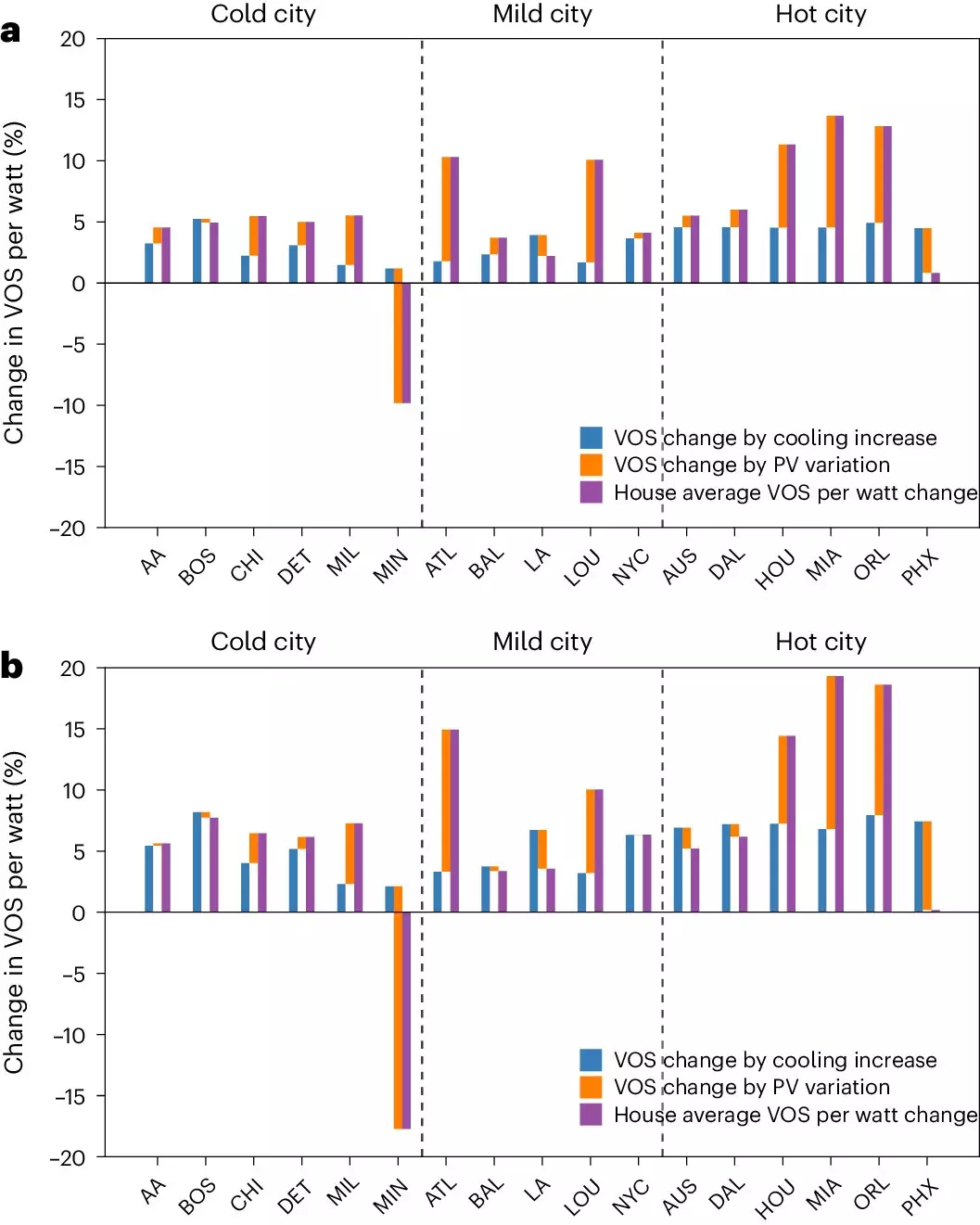The implications of climate change are far-reaching, impacting various aspects of our lives, including the value of residential rooftop solar panels. A recent study led by the University of Michigan suggests that the future value of solar panels across the United States could increase by up to 19% by the end of the century. This increase is attributed to a combination of factors, including changes in weather patterns, energy demand, and solar panel performance.
Defining the Value of Solar
The study defines the value of solar, or VOS, as the financial benefits at the household level from electricity bill savings and revenues generated by selling excess electricity to the grid. It takes into account the initial installation costs of the solar panels as well. The VOS is a crucial metric that determines the economic viability and attractiveness of investing in residential rooftop solar systems.
One of the key drivers behind the projected increase in the future value of rooftop solar panels is the expected rise in demand for residential air-conditioning as the climate warms. As cooling needs escalate, more solar-generated electricity will be consumed within households, rather than being exported to the grid. This shift in consumption patterns has a direct impact on the financial benefits that rooftop solar owners can reap.
Another critical factor that influences the future value of residential rooftop solar panels is the performance of the solar panels themselves in response to changing weather conditions. Solar panels operate most efficiently in cool, sunny weather conditions. As temperatures rise and cloud cover increases, the electricity generation capacity of solar panels can be negatively affected.
The study analyzed data from 2,000 households across 17 U.S. cities to assess the impact of climate change on the value of rooftop solar panels. While most cities saw an increase in the value of solar panels, some variations were observed based on regional factors. Cities like Miami experienced a significant increase in value, whereas Minneapolis saw a decrease in financial benefits from rooftop solar.
Increased awareness of the future value of rooftop solar panels could drive greater adoption of this technology, accelerating efforts to decarbonize the power generation system. Recognizing the potential financial gains from investing in residential solar systems, households may be incentivized to build more solar installations. Various programs exist to promote accessibility to solar energy, ensuring that a broader segment of the population can benefit from the anticipated value of rooftop solar panels.
The study sheds light on the evolving landscape of residential rooftop solar energy in the face of climate change. By understanding the factors that influence the future value of solar panels, households and policymakers can make informed decisions to maximize the economic and environmental benefits of solar energy. As we navigate the challenges of a changing climate, rooftop solar emerges as a promising solution with the potential to drive sustainable energy practices and financial savings for homeowners.


Leave a Reply